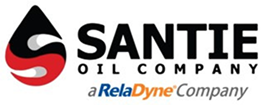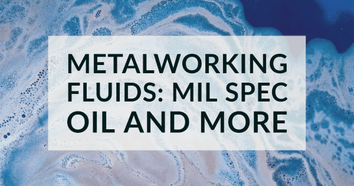Metalworking fluids are quite a lucrative industry. Very lucrative; in fact, the metalworking fluids market is expected to rise to $9.74 billion dollars this year (2020), according to projections in a report issued in 2016. It is an important industry that very literally keeps business moving. Reducing friction on gears is essential for equipment to work efficiently. Here is a look at some of the different types of greases, fluids, and lubricants that come under the umbrella term of metalworking fluids.
What Is Molub Alloy?
Essentially a high-performance grease used in many different capacities, molub alloy is particularly effective for lubricating bearings that roll and or slide when used for long-term purposes. This would involve carrying for transporting high, heavy loads. Lubricating gears with molub alloy will help prevent friction on bearings, thus extending the life of the bearings and allowing them to work in their most efficient capacity. Molub alloy oils are particularly recommended for straight or spiral bevel gears, or spur herringbone gears as well.
What Is Brayco?
Brayco is a water-displacing oil usually used to protect metal surfaces that are unpainted. Indoor storage can sometimes lead to corrosion, and brayco has been formulated to preserve and lubricate items such as fuse mechanisms, small arms, and automatic weapons. Brayco can be applied by spray, squirt can, dip, or swab. It is especially effective in protecting aluminum and magnesium from corroding when temperatures get low to medium.
What Is a Purus Lubricant?
If you are engaged in a job that requires heavy-duty lubricants, then a purus lubricant will be perfect for the task you are completing. Purus is a synthetic gear lubricant used in many applications. For instance, agricultural and construction equipment, manual transmissions, and the differentials of buses, trucks, and passenger cars. With heavy equipment, it is essential to keep all gears lubricated to achieve maximum efficiency. This is the objective of a purus lubricant.
What Is Mil Spec Oil?
Mil spec is short for military standard. As an informal abbreviation for "military standard", mil-spec refers to the U.S. Department of Defense objectives for making sure their guidelines are consistent, or standardized. Mil spec oil is safe for use in an aircraft that travels through low temperatures. A synthetic hydraulic fluid, mil spec oil is fire resistant. In addition to mil spec oil, other lubricants such as mil spec greases, coatings, and fluids are available.
What Is Castrol Optimal?
If you are looking for a high-temperature paste, then this product is perfectly suited for what you are doing. It is great for assembly work as well as for thin-film lubrication. When it is applied as a thin layer, it is virtually colorless. It helps prevent corrosion and is outstanding as a facilitating product in both the assembly and disassembly process.
What Are Cutting Fluids?
Used in stamping and machining, cutting fluids are a type of coolant and/or lubricant designed specifically for the process of metalworking. Cutting fluids were created to help make sure that the cutting and drilling equipment used in metalworking operates to its maximum capacity. Also, these fluids are used to help extend the life of the tools that are used in metalworking (such as tips and grinders). There are four main categories of cutting fluids, each with their own particular functions. They are straight oils, synthetic fluids, soluble oils, and semi-synthetic fluids.
A look at the metalworking fluids currently in use shows the wide variety available today. It also shows the great range of achievements that are possible, too. Awareness of the importance of these products will help prevent mechanical problems that shut down the machines in the manufacturing process and lead to lost revenue. The many options of synthetic greases, coatings, and other metalworking fluids that can be used in manufacturing help prevent mechanical problems and increase production, and lead to higher profit margins.

